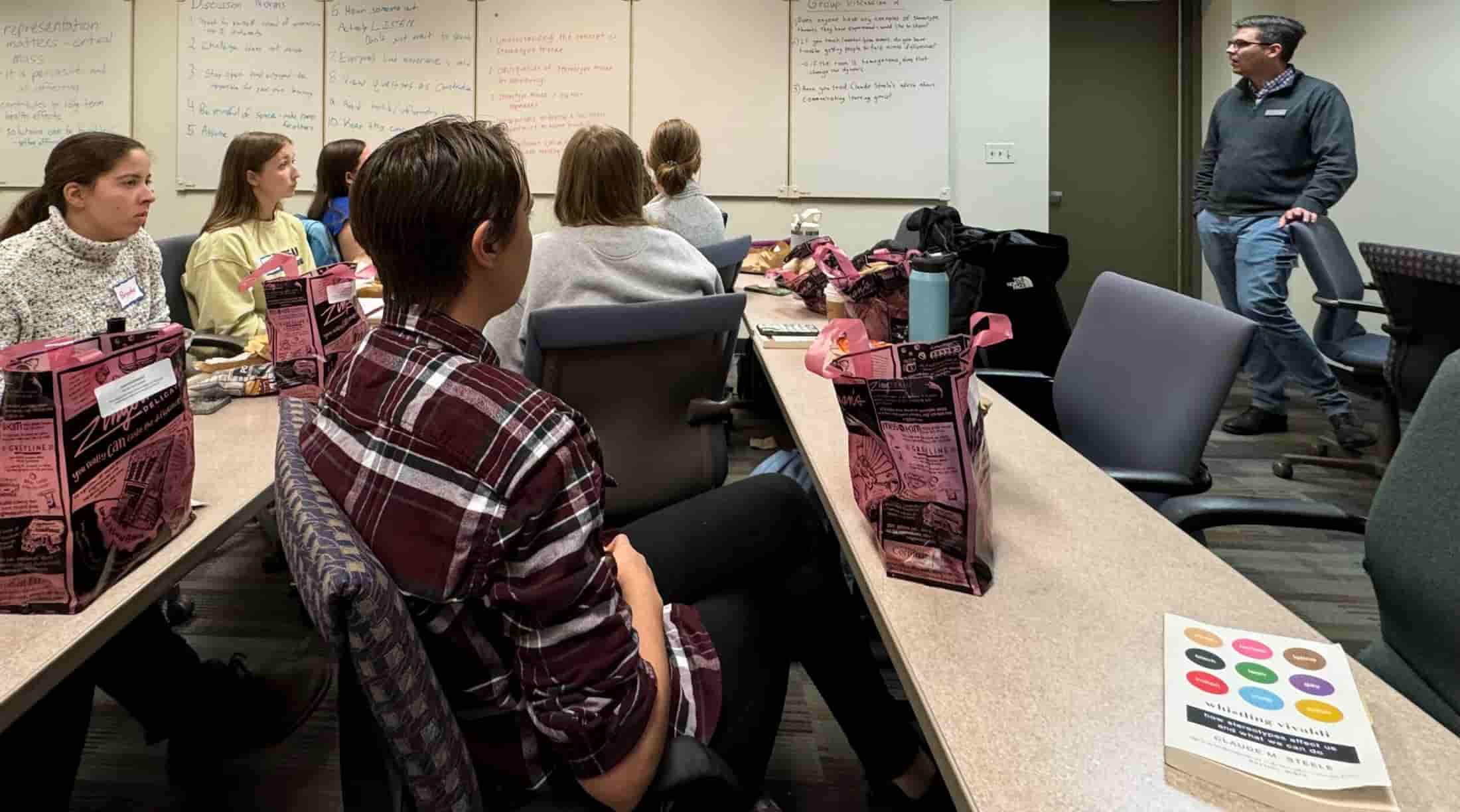
BME DEI Book Club Highlights ‘Whistling Vivaldi’ for Its Opening Session
Faculty, staff and grad students invited to participate in discussions

Faculty, staff and grad students invited to participate in discussions
The BME DEI Book Club held its inaugural meeting on Friday, December 1. About 30 attendees shared lunch and a discussion focused on “Whistling Vivaldi: How Stereotypes Affect Us and What We Can Do,” by Claude Steele. This book, which highlights issues of stereotypes and identity, was the first of three publications the book club will read and discuss this academic year.
Faculty members Alexandra Piotrowski-Daspit, Assistant Professor, Biomedical Engineering and Internal Medicine, Pulmonary and Critical Care Medicine Division, and Aaron Morris, Assistant Professor, Biomedical Engineering, developed the idea of hosting a book club and submitted a Faculty DEI Grant proposal through the College of Engineering, which provided them with the funding to launch the group with matched support from the BME department.
“This seemed like a fun opportunity to do something different and for people in BME to get to know one another in a new setting,” said Dr. Piotrowski-Daspit. “We’re hoping to apply what we learn through our discussions to benefit our BME community at large.”
“One of the goals that particularly resonates with me is the idea of building a community of people at various levels,” added Dr. Morris. “We deliberately included postdocs, grad students, staff and faculty. We left undergraduates out this time just to manage the number of people as we get started, but the idea is to have people get to know each other in this space and see each other as allies in trying to make positive change.”
“The same group will meet together throughout the year, so we will share meals, talk and build our community,” said Dr. Piotrowski-Daspit, who selected this book based on her familiarity with the publication because it had been part of a group reading project during her years as a resident grad student at Princeton. “I think the message is so broadly applicable, particularly about stereotype threat, which can theoretically apply to everyone,” she said. “Some of the examples cited in the book about women in STEM are topics with which I identify. We want to raise awareness about unconscious bias and stereotype threat and think about how to mitigate these issues. How can we change the ‘contingencies’ that people experience?”
“I was familiar with the concept of stereotype threat because I had done some DEI activities through CLRT and Rackham,” said Dr. Morris, “but I was not familiar with the research component behind these issues. This book compiled studies on the social psychology aspect of the topics and packaged it to make it very accessible.”
“I love how Claude Steele tells a story through data, but also weaves in personal anecdotes and experiences into the text,” added Dr. Piotrowski-Daspit. “It makes the research that much more relatable. It’s also unique because some of the research was done at Michigan, and Steele was on the faculty here for a time.”
The next DEI Book Club sessions will be scheduled for early 2024, featuring the books “Babel” and “Why So Slow?”.